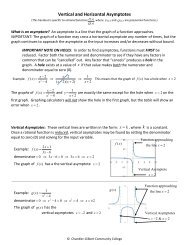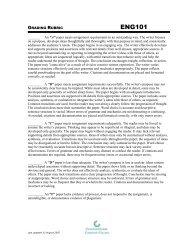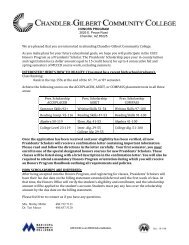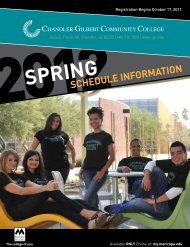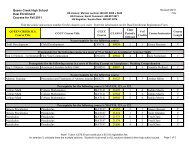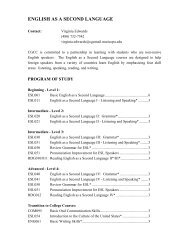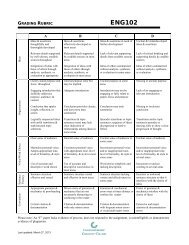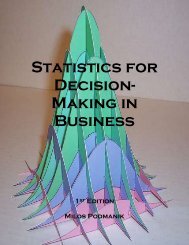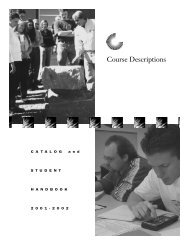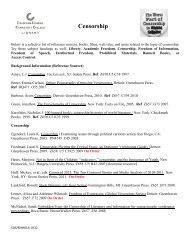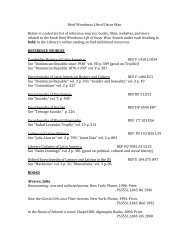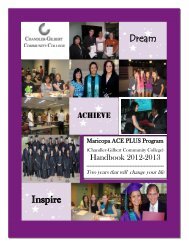Tutor Training Manual.indd - Chandler-Gilbert Community College
Tutor Training Manual.indd - Chandler-Gilbert Community College
Tutor Training Manual.indd - Chandler-Gilbert Community College
You also want an ePaper? Increase the reach of your titles
YUMPU automatically turns print PDFs into web optimized ePapers that Google loves.
26<br />
Adult Learning Pattern Two<br />
Adult learners who tend to undertake a project on their own (as opposed to being assigned<br />
the project) do so with the purpose of solving a problem, or applying the information right<br />
away, as opposed to learning a new subject for the sake of learning it.<br />
This may be a factor of our “hurry up” culture; our plates are full with home, work, and<br />
family responsibilities. Any free time we have in our lives should be used as economically as<br />
possible… and we can see how this carries over into adult education.<br />
Adult Learning Pattern Three<br />
Motivation for adult learners in education tends to come from a need to fill a professional<br />
gap or a direction from superiors.<br />
So, this pattern should come as no surprise, based on the fact that pattern two illustrates<br />
the “practicality” mindset that adult learners have toward continuing education. This may<br />
be dependent on where adult learners are in different professional stages of their lives,<br />
though. The higher up the individual may be on the professional ladder, for instance, the<br />
more likely the individual may wish to learn new subject matter for the sake of learning it.<br />
Adult Learning Pattern Four<br />
Adult learners tend to rely on colleagues or friends who may also be experts in their<br />
professional field for advice when seeking advice on learning or embarking on a new<br />
educational venture.<br />
This has both positive and negative consequences: obviously, if we have colleagues who<br />
share our learning interests and who have had positive experiences, we want to know more<br />
about those experiences and apply that potential to our own lives. We trust and know these<br />
individuals to help us make a significant decision that will impact our free time, finances,<br />
and professional development.<br />
On the other hand, reliance on opinions of others (and not doing the work of discovering<br />
our own personal likes, dislikes, and preferences) instead of our own may result in<br />
disappointment when the learning experience is not all what we expect it to be. A word to<br />
the wise here would be to seek out opinions of others, but balance them with the knowledge<br />
of our own preferences.<br />
Adult Learning Pattern Five<br />
Adult learners tend to appreciate – and continue learning – in courses where they feel they<br />
have a significant contribution to make to the discussion, and that their contributions are<br />
acknowledged and appreciated by the group as a whole.



